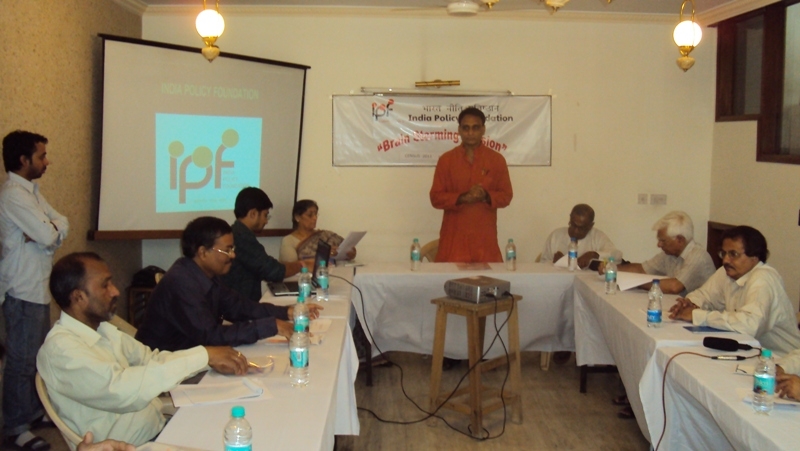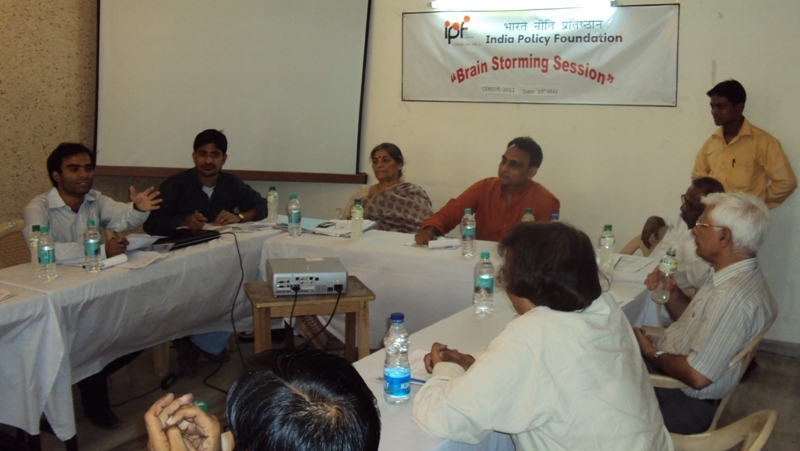CENSUS 2011- WHAT IS WRONG?
Total Views |

May 10, 2010, IPF Conference Hall
In such a situation, it would indeed be difficult to counter the characterization that India is by and large a caste-based society where its tentacles are so deeply embedded that it is very difficult to transcend the caste boundaries while thinking about policies, programmes and the development of the country. With this idea in mind, the Foundation organized the brainstorming session on Census–2011.
Ever since caste enumeration for 2011 started in the country, some political parties and intellectuals have demanded a caste-based census. In the history of post-independent India, this was the first instance when caste came into controversy. The IPF also held a discussion on the issue where intellectuals, sociologists, experts on census and social workers participated. It also came out with an intervention paper, Census 2011: Blinkered Vision, Fragmented Ideas.
Satish Pednekar told the brain-storming session that it is difficult to collect caste data as the list varies from State to State. West Bengal has just 7 per cent OBCs. Dr. Saroj Rath spoke in a similar vein. Sushil Pandit opined that we must take care that caste should not become the focal point instead of census and all data should be objectively and honestly collected. He believed that data is impartial. Prof Rajvir Sharma was of the opinion that caste data might be misused by politicians. It will make Indian politics a client-based business. Netram Thagela supported the caste-based census by saying that there is no need to worry about how these data will be used.
A policy can be formulated only after having proper data. We cannot have any better instrument than this. Qamar Agha suggested that if our identity is separated from our national identity this is going to cause several problems: one such thing is reservation. R Venkatnarayan said that we have a certain policy on the issue for the last 60 years that caste should not be part of the census. The second thing is that the government cannot implement creamy layer concept which is very important. Moreover, socio-economic consideration should be the top priority. Bhupendra Yadav said that the National Population Register is more serious than caste enumeration. NPR should be done after proper police verification. So there is a need to separate both these things. When this matter was raised before the parliamentary committee of the Union Home Ministry, the Committee emphatically told the government that these two exercises of census and NPR must be done separately, otherwise infiltrators will get their names included in the NPR. This is going to present a serious threat to the unity, integrity and social fabric of the country. It will legitimize infiltrators in the country.

Prof. Devraj contended that Indian society is constituted on the basis of caste. There are two basis to recognize caste – by birth and by profession. He felt that census should be done considering vocation of a person or the family. Prof Anil Thakur called the census a compilation of data. All political parties are trying to use it in their favour. We cannot deny that caste is a reality in our society but backwardness should be the criterion for development, not caste. Gopal Agrawal felt that the government must emphasize on economic issues in the census. As far as NPR is concerned, he felt both the NPR and UID are intrusive and should be stopped. Amarjeev Lochan said that we must think over the compromises made on national values by the government in its pursuit of high growth. We must give importance to national issues. Asha Das linked backwardness with the prerogatives of the State. This is the reason that rich people are taking its advantage and declare themselves backward. She questioned it and said such things would happen if caste is enumerated through census.
The Panel Members of the programme were: Shri. R. Venkatnarayan, Former Secretary Govt. of India, Shri Bhupendra Yadav, Senior Advocate, Supreme Court, Shri Sushil Pandit, Social Activist, Shri Uday Sinha, Senior Journalist, Prof. Rajvir Sharma, DU, Dr. Anil Thakur, DU, Prof. Amarjeev Lochan, DU, Prof. Devraj, DU, Dr. Saroj Rath, JNU, Shri Qamar Agha, Senior Journalist. Shri Gopal Agarwal, Economist & Thinker, Prof. Netram Thagela, General Secretary,
All India Confederation of SC/ST Organizations, Shri Satish Pednekar, Senior Journalist, Prof. Rakesh Sinha, Hon. Director, IPF